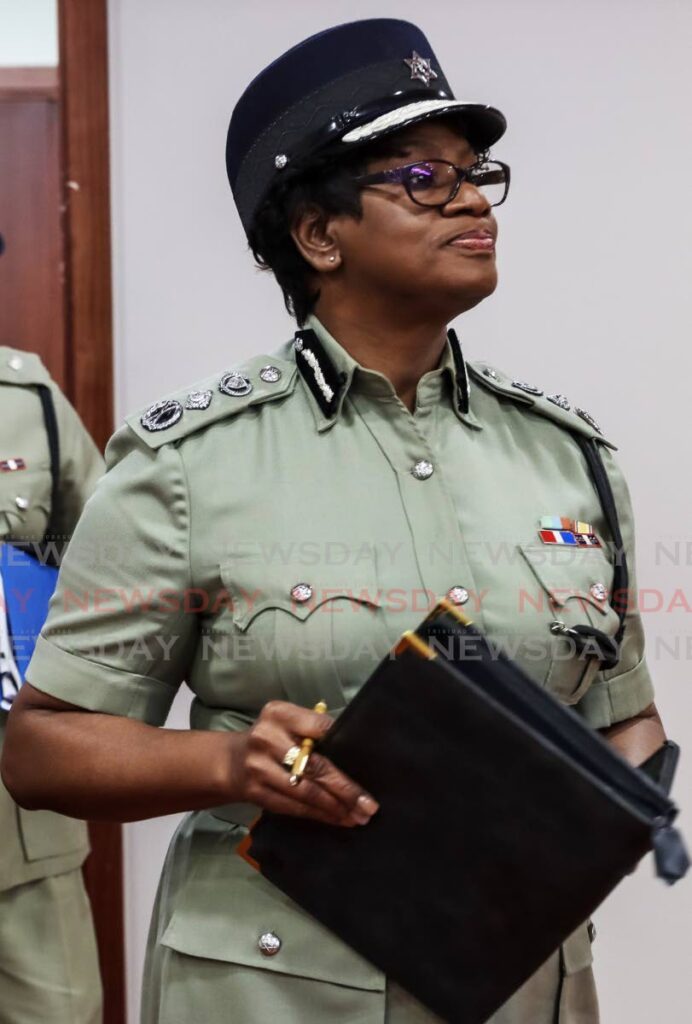Political will needed to improve TTPS

THE EDITOR: Officers of the TTPS have been under mounting pressure for several years now, attributed to unacceptable spiralling crime levels and poor management. Many committed officers endure sleep deprivation on a regular basis since available resources appear to be spread too thinly in the ongoing war on crime.
Notwithstanding, yeoman service is provided by some law enforcers that should inspire their colleagues to rise above general mediocrity and disservice as perceived by significant portions of the citizenry.
Police Constable Darion Thomas became a shining example of what quality service looks like. On two occasions he assisted different women on the verge of giving birth in heavy traffic by expediting their arrival time at the Sangre Grande Hospital.
However, in stark contrast of PC Thomas’s achievement came the following actions by other officers which appear to be examples of ongoing trends for improvement:
We would recall the woman police constable’s rude responses to a caller regarding a home invasion, where she basically berated the caller for not coming into the St Joseph Police Station to make the report. After listening to the recording on social media I wondered: is basic phone etiquette included in police officers' training?
The WPC was rightfully reprimanded for the infraction.
The latest faux pas at the time of writing occurred when a driver was egregiously pulled over by police officers on the Solomon Hochoy Highway. The officers cited that the driver failed to give way to their emergency vehicle seeking to change lanes. However, no indication/signal was evident from the officers or their marked police vehicle to alert the driver of their intention to change lanes.
These officers are being sent for retraining at the Police Training Academy, according to ASP Ishmael Pitt.
Another aspect for improvement is sometimes apparent when arrests are being made and individuals are seen getting up close and personal to officers while hurling expletives to stop the arrest/s. From an observer’s standpoint, some people appear to evade arrest for obstructing police officers in the line of duty.
Moreover, it recently became public knowledge that certain officers were mandated to wear body cams, a rule they largely flouted and for which no discernible reprimand was attributed. While the failure to enforce the rule is nothing short of failed management, it is plausible to assume that officers may have been afraid of getting caught in actions counter to processes/procedures.
And these negative actions may not all be deliberate, since an officer simply may not know the correct procedure for addressing a particular situation, which his body cam will capture. This analogy is not far-fetched in our society.
So why does negativity appear to overshadow the positives of the TTPS performance in the eyes of significant cross sections of the public? Rationalists will attribute most blame to poor management. There was no consequence for refusing to wear a body cam. What does that say about the Commissioner of Police? What is the message sent to subordinates?
Given that reprimands seem to be in short supply, if the Police Training Academy provides the relevant training, what compels all officers to apply what they have learnt when they are on and off duty?
Nonetheless, if not already implemented, I find it prudent to suggest that a database be created to house situations that have been badly managed by officers. These examples of what not to do along with their respective solutions should then be included as training material, and the database updated accordingly.
Improvements within the TTPS are critical if more people are to wholeheartedly trust police officers, thereby providing more relevant information for crime-solving. But do the authorities have the political will to procure the required changes?
DEXTER RIGSBY
Mt Lambert

Comments
"Political will needed to improve TTPS"